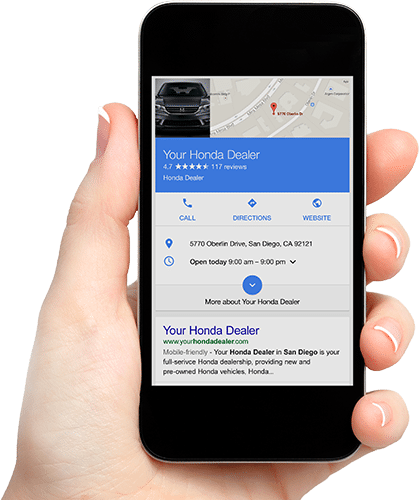Five Local Search Tips That Deliver Results For Any Business
Think about the last time you conducted an online search for a restaurant, hotel chain, or any other business with brick-and-mortar stores at multiple locations. Chances are you weren’t looking for the corporate website. Instead, you probably needed the local address or the hours of operation for the nearest location—and you likely found it through local search. While you were at it, you may also have taken a look at some customer reviews, which are delivered as part of local search results.
In other words, local search plays a key role in getting customers through the doors of nearly any type of business—which is one reason we consider it a critically important discipline independent from SEO as a whole. Local search works hand-in-hand with organic search, but it appears on a different part of the search results page and uses a unique algorithm to pull information from a specific set of sources. What many business owners don't realize is that they are accountable for ensuring the accuracy of their local search data.
Here are five best practices that can help any business better manage their reputation through local search:
1. Claim and verify your directory listing. Claiming your business’ directory listing is a fundamental part of local search management—not only because it enables customers to find your stores, but also because it prevents an unauthorized user (such as a competitor or a former employee) from posting incorrect information about your business. The first step is to create an account on the listing site. Next you will have to follow the verification steps, which vary across sites. Some, like Google and Bing, require that you request a physical postcard with a PIN that you can use to verify your business’ address. Then you can begin to update your directory information, which includes names, addresses, phone numbers, hours of operation, and more.
2. Remove duplicate listings and incorrect information. We’ve found that, on average, our new clients have 15 duplicate listings, and 57 percent of their listing information is incorrect. These extra listings and incorrect data often arise when listing sites pull in information from a range of sources that the business may not have control over, such as data aggregators and user-generated content. Listing sites are in the business of driving ad revenue, not accurate information. We help our clients ensure the accuracy of their information across more than 50 different directories to better manage local search.
3. Continue managing local search over time. It might be easy to assume that once you’ve claimed and verified your directory listings, your job is done. Unfortunately, that’s not the case. Directories continue pulling in new information from various sources, so it’s important to continue being vigilant about monitoring your online presence. As part of our local search offering, we monitor our clients’ directory listings and reputation over time, so they experience long-term results.
4. Monitor reviews. Reputation management is a key component of local search, and it requires monitoring and responding to reviews on local search directories. We believe it is crucial to respond to every single review. By responding thoughtfully and politely to both positive and negative, it demonstrates that you care about the quality of the customer experience—potentially helping your business garner positive reviews in the future. As part of our local search offering, we monitor our clients’ online reputations, notify them of all reviews, and respond to the reviewers.
5. Avoid common listing errors. Even once a business verifies and gains control over its directory listings, it’s still easy to make small mistakes that can have a big impact on local search. One frequent error we’ve noticed is failing to utilize enhanced content options, such as photos and descriptions, that can entice users to interact with your listing. Another common issue is inconsistent naming across all directory listings, as well as names that don’t distinguish different locations that are part of a chain. These sorts of inconsistencies can confuse and deter users, so avoiding them is key to helping our clients stay competitive.
To learn more about how Search Optics can help your business achieve better results through local search, click here.

